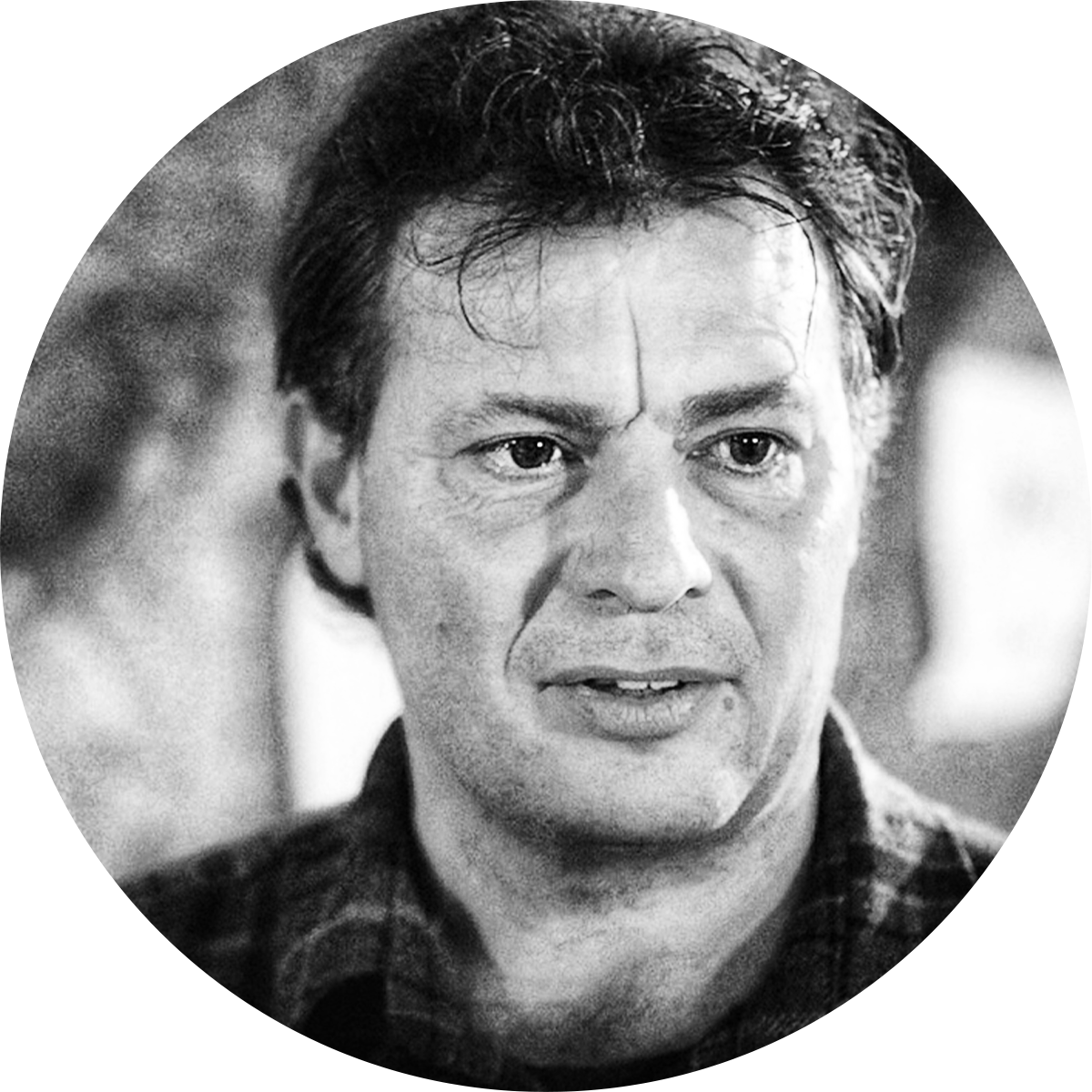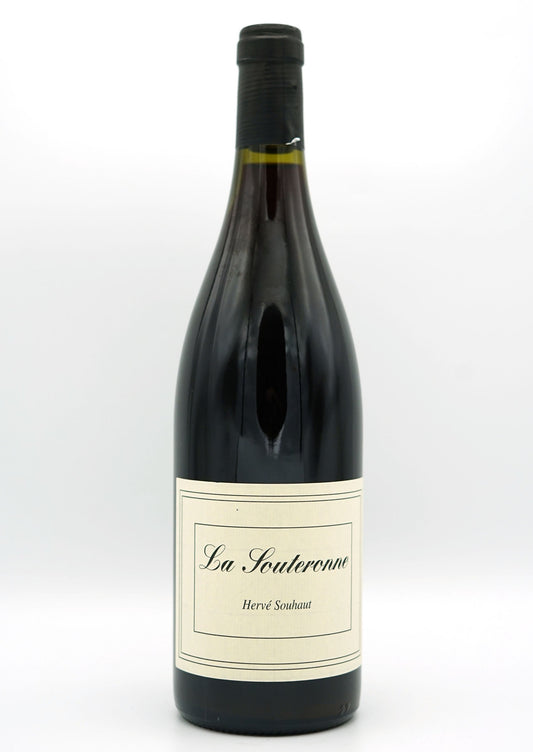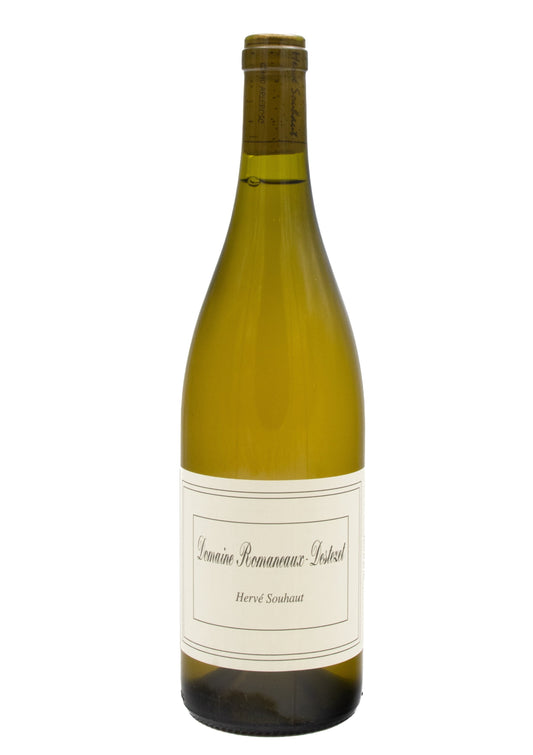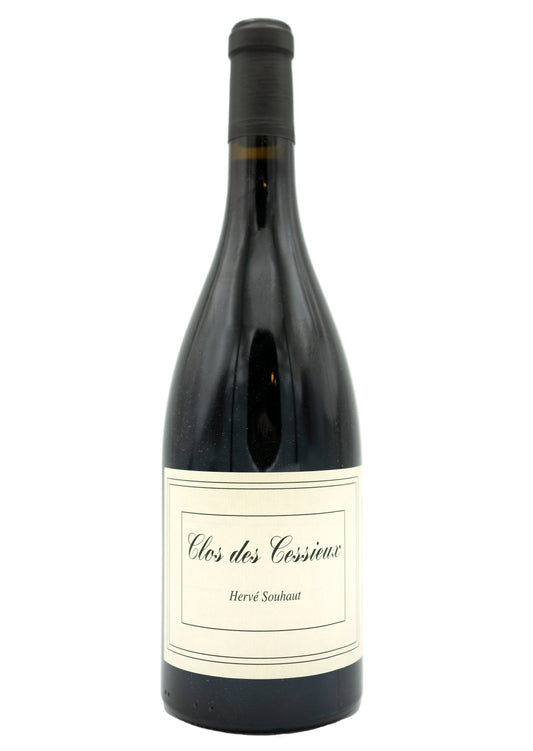DOMAINE ROMANEAUX-DESTEZET
HERVÉ SOUHAUT
Rhône Valley, France
Hervé Souhaut created Domaine Romaneaux-Destezet in 1993. Located further into the hills of the Northern Ardeche in the tiny town of Arlebosc, not far from St Joseph.
Here he works 5-hectares of old vines—between 50 to 100 years old. Two of the vineyards are just opposite the famous hills of Hermitage in Saint Joseph.
Hervé works entirely on whole grape bunches and semi-carbonic maceration, to extract a delicate balance of tannins from the grapes, to make a wine with subtlety and finesse.
MORE OF DOMAINE ROMANEAUX-DESTEZET
-
Hervé Souhaut La Souteronne 2019 Magnum
Regular price HK$590.00Regular priceUnit price / per -
Hervé Souhaut Romaneaux-Destezet Blanc 2022
Regular price HK$270.00Regular priceUnit price / per -
Hervé Souhaut Clos des Cessieux 2020
Regular price HK$470.00Regular priceUnit price / per
BACKGROUND OF NATURAL WINE IN RHÔNE VALLEY
Nestled in southeastern France, the Rhône Valley boasts a rich winemaking heritage dating back to ancient times. Divided into two distinct regions, the Northern Rhône and the Southern Rhône, this area is renowned for its diverse range of wines, including robust reds, elegant whites, and aromatic rosés. Syrah dominates the Northern Rhône, producing iconic wines such as Hermitage and Côte-Rôtie, while the Southern Rhône is famed for its Grenache-based blends, most notably in Châteauneuf-du-Pape. The region's Mediterranean climate, diverse terroir, and centuries of winemaking tradition contribute to the Rhône Valley's status as one of France's premier wine regions.
Organic, Biodynamic and Natural wine. What’s the difference?
To understand this concept and its various ramifications, it is necessary to keep something clear in mind: before the 20th century and the spreading of affordable synthetic fertilisers, all farming was organic. When the shift to the use of synthetics and pesticides happened, it became necessary to diversify traditional organic farming from the new modern farming.
ORGANIC WINE
Simply put, organic farming forbids the use of synthetic fertilisers, synthetic pesticides, herbicides, or genetically modified organisms. The basic requirements are generally specific and engage the farmers not to use any chemical fertilisers and other synthetic products in the vineyard. It does not prevent the vintner from using the conventional winemaking process after harvesting.
BIODYNAMIC WINE
Let’s take organic farming one step further: Biodynamic. The creator of this agricultural system is the Austrian philosopher Rudolf Steiner, who developed the principles of biodynamics in a series of lectures given in 1924 in Germany. Here lies the foundation of true organic wines, with a strict limit in the use of additives, stringent requirements and at the end obtaining a biodynamic certification.
NATURAL WINE
The previous definitions are usually, and rightfully, associated with it, because most natural wine is also organic and/or biodynamic. But not vice versa!
Natural wine is wine in its purest form, simply described as nothing added, nothing taken away, just grapes fermented. No manipulation whatsoever, minimal intervention both in the vineyards and in the winery. Healthy grapes, natural yeast and natural fermentation, with no filtration nor fining. Sounds easy, right? However, making natural wine is unforgiving and it requires a bigger amount of work than conventional wine. To this day, natural wine has no certification yet.








